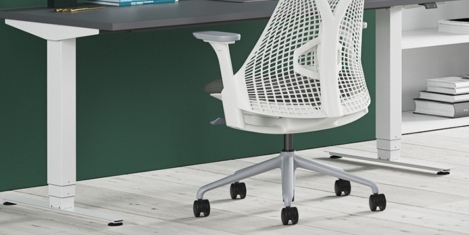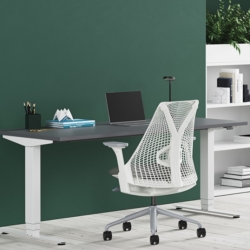To provide the best experiences, we use technologies like cookies to store and/or access device information. Consenting to these technologies will allow us to process data such as browsing behaviour or unique IDs on this site. Not consenting or withdrawing consent, may adversely affect certain features and functions.
The technical storage or access is strictly necessary for the legitimate purpose of enabling the use of a specific service explicitly requested by the subscriber or user, or for the sole purpose of carrying out the transmission of a communication over an electronic communications network.
The technical storage or access is necessary for the legitimate purpose of storing preferences that are not requested by the subscriber or user.
The technical storage or access that is used exclusively for statistical purposes.
The technical storage or access that is used exclusively for anonymous statistical purposes. Without a subpoena, voluntary compliance on the part of your Internet Service Provider, or additional records from a third party, information stored or retrieved for this purpose alone cannot usually be used to identify you.
The technical storage or access is required to create user profiles to send advertising, or to track the user on a website or across several websites for similar marketing purposes.
 A new report from property consultancy Cluttons looks at the new challenges the Prime Central London office market faces in 2021/22, with issues such as Brexit and the immediate impacts of the global pandemic – but also longer-term problems like changing lifestyle preferences, the uptake of remote working and climate change. (more…)
A new report from property consultancy Cluttons looks at the new challenges the Prime Central London office market faces in 2021/22, with issues such as Brexit and the immediate impacts of the global pandemic – but also longer-term problems like changing lifestyle preferences, the uptake of remote working and climate change. (more…)






 Young professionals and students have far greater concerns about the rise of remote work than their senior counterparts, according to a new report from
Young professionals and students have far greater concerns about the rise of remote work than their senior counterparts, according to a new report from 
 According to new research from
According to new research from 
 At this time of year, with events such as Happiness at Work Week and
At this time of year, with events such as Happiness at Work Week and 
 New research from
New research from 


 The debate about the workplace and the future of work gets more interesting by the week. In the last few days alone, I’ve listened in on three great speakers talking about the opportunities, challenges, nuances and complexities of it all in a way that has been all but impossible in the past 18 months. In addition, Nigel Oseland has published
The debate about the workplace and the future of work gets more interesting by the week. In the last few days alone, I’ve listened in on three great speakers talking about the opportunities, challenges, nuances and complexities of it all in a way that has been all but impossible in the past 18 months. In addition, Nigel Oseland has published 
 Workers are leaving jobs like never before, and it’s causing a shortage of talent that has companies around the globe reeling, according to a
Workers are leaving jobs like never before, and it’s causing a shortage of talent that has companies around the globe reeling, according to a 
 Socio-economic fault lines exposed by COVID-19 are creating an unforgiving marketplace, with companies under scrutiny from governments and the public and little room to avoid disputes and investigations into business practices and behavior, according to a new report from
Socio-economic fault lines exposed by COVID-19 are creating an unforgiving marketplace, with companies under scrutiny from governments and the public and little room to avoid disputes and investigations into business practices and behavior, according to a new report from 
 The CIPD has welcomed a new consultation from the UK Government on making flexible working requests a day one right. The CIPD launched its #FlexFrom1st campaign in February, calling for all employees to have the immediate right to request flexible working. Under the proposed legislation, companies would be obliged to explain their reasons if it is then refused. The plan would also oblige employers to respond to such requests more quickly, and is being billed as a major reshaping of the way people work in a post-pandemic world, making flexible work the default.
The CIPD has welcomed a new consultation from the UK Government on making flexible working requests a day one right. The CIPD launched its #FlexFrom1st campaign in February, calling for all employees to have the immediate right to request flexible working. Under the proposed legislation, companies would be obliged to explain their reasons if it is then refused. The plan would also oblige employers to respond to such requests more quickly, and is being billed as a major reshaping of the way people work in a post-pandemic world, making flexible work the default. 
 New research released by
New research released by 








October 13, 2021
Shift to hybrid working highlights the value of weak ties
by Mark Eltringham • Comment, Flexible working, Workplace design